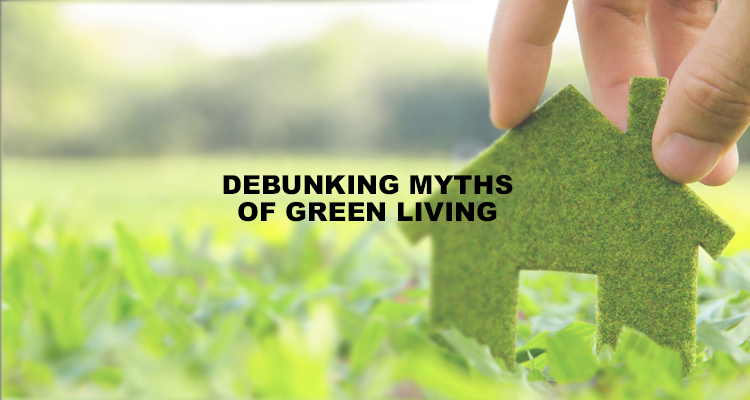There are many myths of green living, and some people may be unaware of the benefits or drawbacks of it. That is why this time we deal with some of the most widely believed myths of green living and debunk them – for your own good.
Myth 1: Green living is expensive
The truth: The first thing that comes to mind when talking about green living is it’s expensive, hence not many people can afford it. In fact, it is quite the opposite.
Green living ideas emerged out of people’s need to preserve the environment and help decrease the pollution. Most often, green living is not even based on money, but rather on recycling and upcycling, reusing and repurposing, hence decreasing the costs and prolonging the life cycle of goods which would have been otherwise thrown away.
Myth 2: Organic is better
The truth: Compared to the traditional food production, organic food implies the use of less pesticides and chemicals in the production and harvesting process. That is why in recent years many products in supermarkets have an “organic” stamp to guarantee their origin and environment protection.
However, organic does not necessarily have to be better each and every time. The factor that determines its value is the place of origin. Hence, if an organic product comes from China, Indonesia or the US, its transportation costs make it even more expensive.
The best advice here would be to try to find organic producers from your own community, local farms which do not mass produce their fruits and vegetables and visit them every time you need a reliably fresh and organic produce. They may not give you the “organic” stamp, but they are a better warrant as you can see their organic production process first hand.
Myth 3: Plastic is necessary
The truth: Until recently, all stores were giving out free plastic bags to their customers to carry their goods home. However, now that the majority of world population has learnt that plastic takes hundreds of years to decompose, many stores have stopped this practice.
Depending on what we use plastic for, it may still be both necessary and unnecessary.
Using plastic bags to carry home food from the store and then tossing them should be avoided, as well as many other single-use instances of waste production.
Opt for multipurpose cloth bags – they are more spacious, come in a plethora of designs, and can be reused virtually forever.
Same way, plastic waste containers can be replaced by steel waste containers, because they are more resistant to vandalism and weather conditions. Their use in the long run truly pays off, as they are made of improved materials and can serve various purposes.
On the other hand, nothing keeps food fresh as good as reusable plastic bowls with vacuum lids, nor are glass water bottles easy or safe to carry around all day long.
Hence, although this myth of plastic being necessary holds true in some cases, there are other cases in which plastic can be completely avoided and replaced with other environmentally-friendly materials.
Myth 4: Appliances do not use power if they are switched off
The truth: Many people believe it is enough to switch off electronical devices to save power. That mostly refers to personal computers and laptops, phone and tablets chargers, television and music sets, or even some kitchen appliances that are used relatively rare yet they remain plugged in just in case.
However, what actually saves power is plugging these devices out of sockets completely. This is so because, even when chargers and adapters are plugged in, a small amount of electricity flows through the wires and is generally wasted if no devices are there to consume the power.
Myth 5: Being a vegetarian cuts down gas emission
The truth: The idea behind the belief that being a vegetarian cuts down gas emission is based on the claim that production of vegetarian food consumes less electricity than meat production and processing.
In fact, there is no evidence to confirm or deny this claim. Depending on the final product, both fruit and vegetables and meat need approximately the same amount of water and electricity to be processed into products that end up in store racks for us to buy.
What actually does decrease gas emission is opting for locally grown produce rather than buying the imported ones. That way the investment into transportation is decreased, hence there is lower gas emission.
Myth 6: Global warming is a myth
The truth: Unfortunately, global warming is not a myth, although its direct consequences are not observable every day.
Harvey tropical storm that hit the US this August is causing many casualties and an enormous damage to the land. Before that, there was hurricane Katrina in 2005. Remember the earthquakes in Haiti in 2010 and in Japan in 2011. Polar caps and glaciers are melting; there are rain showers in places where there is no rain history for decades or even centuries; no clear lines between the seasons, etc. These are all signs of the climate changes caused by global warming.
Global warming is an immense problem not easy to solve individually. Yet, if every person in the world gave their humble contribution, it would for sure be significantly easier to tackle it in the long run.
Myth 7: Urban areas pollute the environment most
The truth: Pollution emerges from the entire world, be it urban or rural settings – and its amount varies depending on the pollution origin.
What may also be the case is that people in urban settings have a lower impact on the environment because they use proper waste management and disposal systems. Their community organises waste disposal services and provides them with the right waste containers, and people in cities are more aware on how to reduce waste production.
On the other hand, people in rural communities probably produce more organic waste, which can be used as compost and organic fertiliser. Depending on town or city proximity, rural communities may not even use industrial waste containers at all or separate waste, hence virtually polluting the environment more.
To cut the long story short, there has to be balance with everything in life, green living included. Many green living myths are there for reason, while other do not hold ground.
Green living does not have to be expensive, organic is not necessarily better, plastic is sometimes inevitable and advisable to use, appliances need to be fully plugged out of sockets to decrease power consumption, vegetarianism does not cut down gas emission, global warming is not a myth, and urban areas do not pollute the environment if they use the right waste containers.
Now back to you. Have you got any other green living myths that we forgot to mention? Feel free to share your comments with us on our social media pages: Facebook, Google+ and Linkedin – we look forward to hearing from you!


Recent Comments